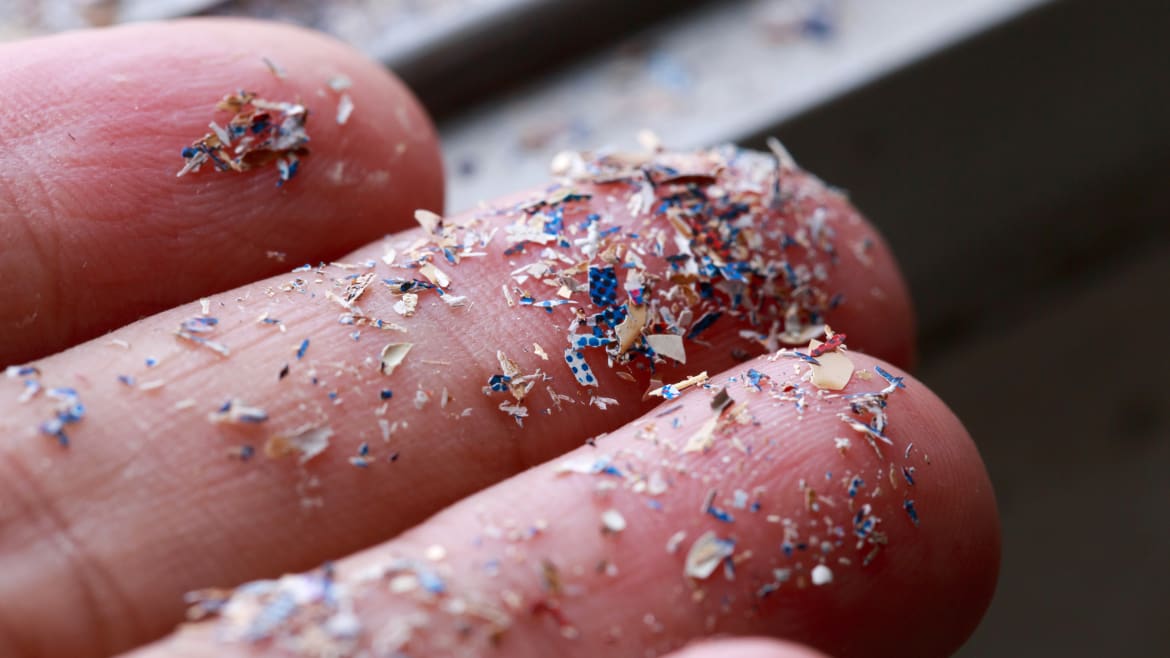Getty
Microplastics are, by definition, an insidiously difficult problem to see in our world despite being everywhere in our world at this point—our oceans (where they can help spread diseases), the Antarctic snow, and circulating in the bodies of living organisms including human beings. Tiny bits of plastic are in the things we ingest and the air we breath, so they enter our bodies and are left to just linger around. We’re only just starting to investigate exactly what the effects might be.
A new bit of data only highlights how grave the problem might be. On Tuesday, Australian researchers published a study that found that the average human seems to inhale about 16.2 bits of microplastic every hour. When you tally that up, it comes out to the equivalent of inhaling a credit card-sized amount of plastic every week.
“Millions of tons of these microplastic particles have been found in water, air, and soil. Global microplastic production is surging, and the density of microplastics in the air is increasing significantly,” Mohammad S. Islam, a researcher at the University of Technology Sydney and the lead author of the new study published in Physics of Fluids, said in a press release. “For the first time, in 2022, studies found microplastics deep in human airways, which raises the concern of serious respiratory health hazards.”

